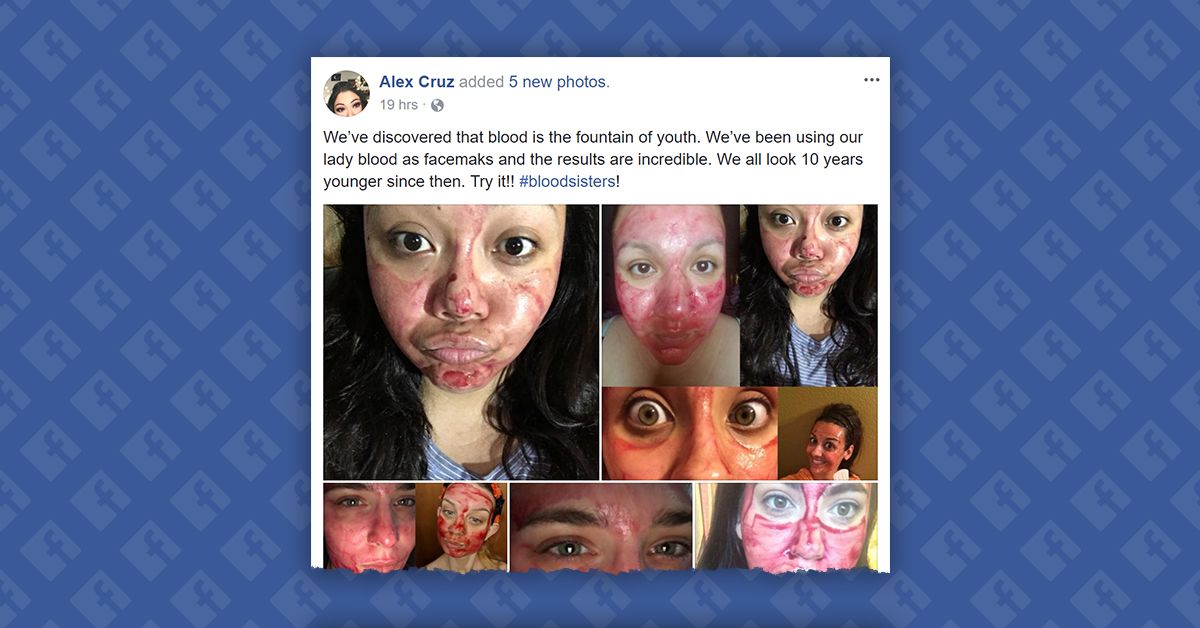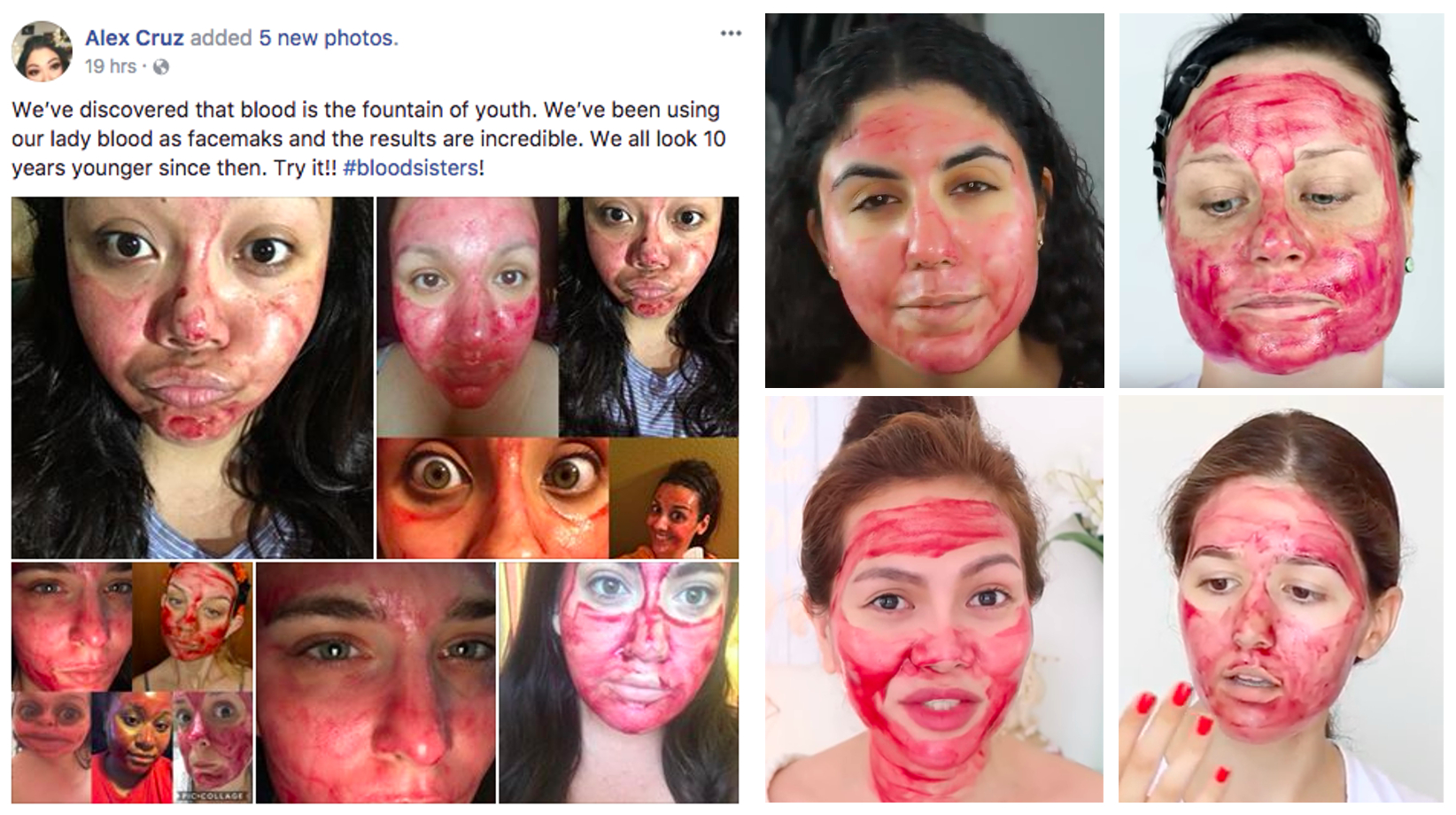In January 2018, a widely-shared Facebook post tricked some readers into thinking there was an emerging beauty trend that involves women using their own menstrual blood as a face mask.
Facebook user Alex Cruz posted several photographs of women, all with a thin layer of a red substance on their faces, along with this message:
We’ve discovered that blood is the fountain of youth. We’ve been using our lady blood as facemaks [sic] and the results are incredible. We all look 10 years younger since then. Try it!! #bloodsisters!
Despite being shared more than 18,000 times in less than a day, the "menstrual blood face mask" is no more than a clever hoax that plays off the sanguine appearance of a popular new skincare product.
The Ordinary is a line of products sold by beauty company Deciem. Among them is The Ordinary AHA 30% + BHA 2% peeling solution, which produces an exfoliating face mask.
The blood-red color comes from what the company describes as "a studied Tasmanian Pepperberry derivative."
The result is a thin layer of red solution smeared on to the user's face, giving an appearance identical to the photographs in Cruz's post.
The images on the left are taken from the "blood sisters" hoax, while the four images on the right are taken from YouTube reviews of The Ordinary peeling solution:
The "blood sisters" hoax is not to be confused with the so-called "Vampire facial," a beauty treatment popularized by Kim Kardashian, which involves a dermatologist drawing blood from your veins, using a centrifuge to separate out what's called "platelet-rich plasma," and then injecting that into your face.


